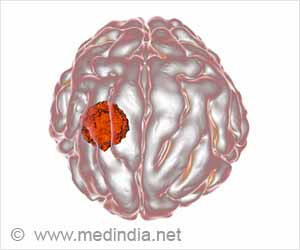- A diet high in antioxidants and low in added sugars can reduce biological age at the cellular level
- High sugar intake accelerates epigenetic aging, even when consuming a balanced diet
- Reducing daily added sugar intake by 10 grams may reverse biological aging by 2.4 months over time
Eating a diet high in vitamins and minerals, particularly one low in added sugar has been linked to having a lower biological age at the cellular level, suggested researchers at UC San Francisco (1). They investigated how three distinct measures of good eating influenced a “epigenetic clock” – a biochemical test that can estimate both health and lifespan – and discovered that the better people ate, the younger their cells appeared. Even when people ate a nutritious diet, every gram of extra sugar they ingested resulted in a rise in epigenetic age.
Advertisement
Antioxidant-Rich Diet Promotes a Younger Cellular Age
“The diets we examined align with existing recommendations for preventing disease and promoting health, and they highlight the potency of antioxidant and anti-inflammatory nutrients in particular,” said Dorothy Chiu, Ph.D., a postdoctoral scholar at the UCSF Osher Center for Integrative Health and first author of the study, which appears on July 29 in JAMA Network Open. “From a lifestyle medicine standpoint, it is empowering to see how heeding these recommendations may promote a younger cellular age relative to chronological age.”
The study is one of the first to demonstrate a link between added sugar and epigenetic aging, as well as the first to investigate this link in a diverse population of middle-aged women, both Black and white. Most investigations on the subject have included older white people. The study contributes to a better understanding of why sugar is so bad for your health, says study co-senior author Elissa Epel, PhD, a UCSF professor in the Department of Psychiatry and Behavioral Sciences.
Advertisement
Diet High in Sugar Accelerates Aging
“We knew that high levels of added sugars are linked to worsened metabolic health and early disease, possibly more than any other dietary factor,” Epel told reporters. “Now we know that accelerated epigenetic aging is underlying this relationship, and this is likely one of many ways that excessive sugar intake limits healthy longevity.”
The women in the study reported ingesting an average of 61.5 grams of added sugar per day, with a wide range of 2.7 to 316 grams. A bar of milk chocolate contains roughly 25 grams of added sugar, whereas a 12-ounce can of cola contains approximately 39 grams. The FDA recommends that individuals consume no more than 50 grams of added sugar each day.
Advertisement
Link Between Diet and Epigenetic Clock
For the cross-sectional study, researchers examined the eating records of 342 Black and white women from Northern California, with an average age of 39 years. Then they matched their diets to epigenetic clock measurements obtained from saliva samples. The researchers compared the women’s diets to a Mediterranean-style diet high in anti-inflammatory and antioxidant foods, as well as a diet related to a lower risk of chronic disease.
Finally, they compared the women’s diets to a measure they developed termed the “Epigenetic Nutrient Index (ENI),” which is based on nutrients (not meals) associated with anti-oxidative or anti-inflammatory processes, as well as DNA maintenance and repair. These include vitamins A, C, B12, and E, as well as folate, selenium, magnesium, fiber, and isoflavones.
Adherence to any of the diets was strongly associated with younger epigenetic ages, with the Mediterranean diet having the highest correlation. The researchers looked at sugar intake independently and discovered that eating items with added sugar was associated with faster biological aging, even with a balanced diet.
According to co-author Barbara Laraia, Ph.D., R.D., a UC Berkeley professor in the Food, Nutrition, and Population Health program, eliminating 10 grams of added sugar per day may be equivalent to resetting the biological clock by 2.4 months over time, given that epigenetic patterns are reversible. “Focusing on foods high in key nutrients and low in added sugars may be a new way to help motivate people to eat well for longevity.”
References:
- Healthy diet with less sugar is linked to younger biological age
(University of California – San Francisco. “Healthy diet with less sugar is linked to younger biological age.” ScienceDaily. ScienceDaily, 29 July 2024..)
Source-Medindia



